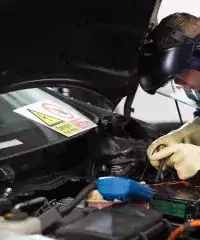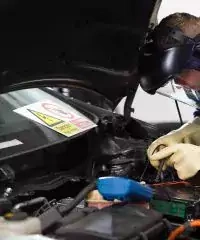Automotive workforce challenge: Ageing workforce threatens the UK’s road safety

Voice of automotive workforce warns motorists will continue to face postcode lottery for vehicle servicing and repairs and rising costs unless action is taken to attract more diverse talent
The latest analysis of workforce data from the voice of the automotive sector, the Institute of the Motor Industry (IMI), reveals the underlying reasons why motorists are currently struggling to access vehicle servicing or repairs. With an ageing workforce and only marginal improvements in diversity, the sector’s ability to attract new talent is being seriously undermined. With vacancies rocketing up for the period July to September 2025 to 19,000, without urgent action by government and employers, UK road safety is at serious risk.
“The wealth of knowledge and expertise held by the current UK automotive workforce must not be underestimated,” said Nick Connor, CEO of the IMI. “The time is now for us to build a new pool of talent to replace experienced technicians as they retire, and if we don’t, UK road safety and the government’s net zero targets are in jeopardy.
“Multiple barriers remain for people to enter our sector, including being either disabled or female. It’s also clear that strong career progression is not being prioritised with poor representation of women, non-White British workers and those with disabilities in senior roles. We need employers and government to step up to ensure motorists have the confidence that they will be able to access competent and professional services to stay safe on the roads.”
Key data points:
- Over 47% of the automotive workforce is aged 45+
- Women comprise just 18.6% of the automotive workforce, although there has been a marginal 1.1% increase year-on-year
- Only 10.4% of senior roles are held by women – and over the past three years, female representation in senior automotive roles has declined by 12.3%
- Disabled workers represent 16.2% of the workforce – a 2.5% increase over the previous 3 years but just 9.8% of disabled workers are in senior roles
- Representation of non-White British workers in the automotive workforce has increased from 12.5% to 19.9% year-on-year – a 7.4 percentage point rise, however, only 11.6% of non-White British workers are in senior roles
The UK automotive sector employs approximately 760,000 people, accounts for 2.3% of all UK jobs and contributes over £37 billion to the UK economy. Playing such a critical role in UK social and economic infrastructure, the IMI is urging employers to prioritise inclusive recruitment, particularly in technical and leadership-track roles as well as develop retention and progression pathways for under-represented groups.
Government funding for employer-led inclusion initiatives should also support practical, sector-specific solutions to workforce underrepresentation. The IMI is also calling for government to build on the Pathways to Work strategy, addressing accessibility and progression barriers for disabled workers in technical sectors and advocate for diversity and inclusion rules to Local Skills Improvement Plans (LSIPs) and technical education reforms.
“It’s time for the government to recognise the fundamental role of automotive to the UK economy,” added Nick Connor. “Without reforms to skills funding, Industrial Strategy investment, and the national recognition of competence standards such as IMI TechSafe, workforce diversity and skills development risks will continue to undermine the sector, despite government expecting it to deliver on net zero targets. And motorists will experience more challenges when they need competent support for their vehicles.”





